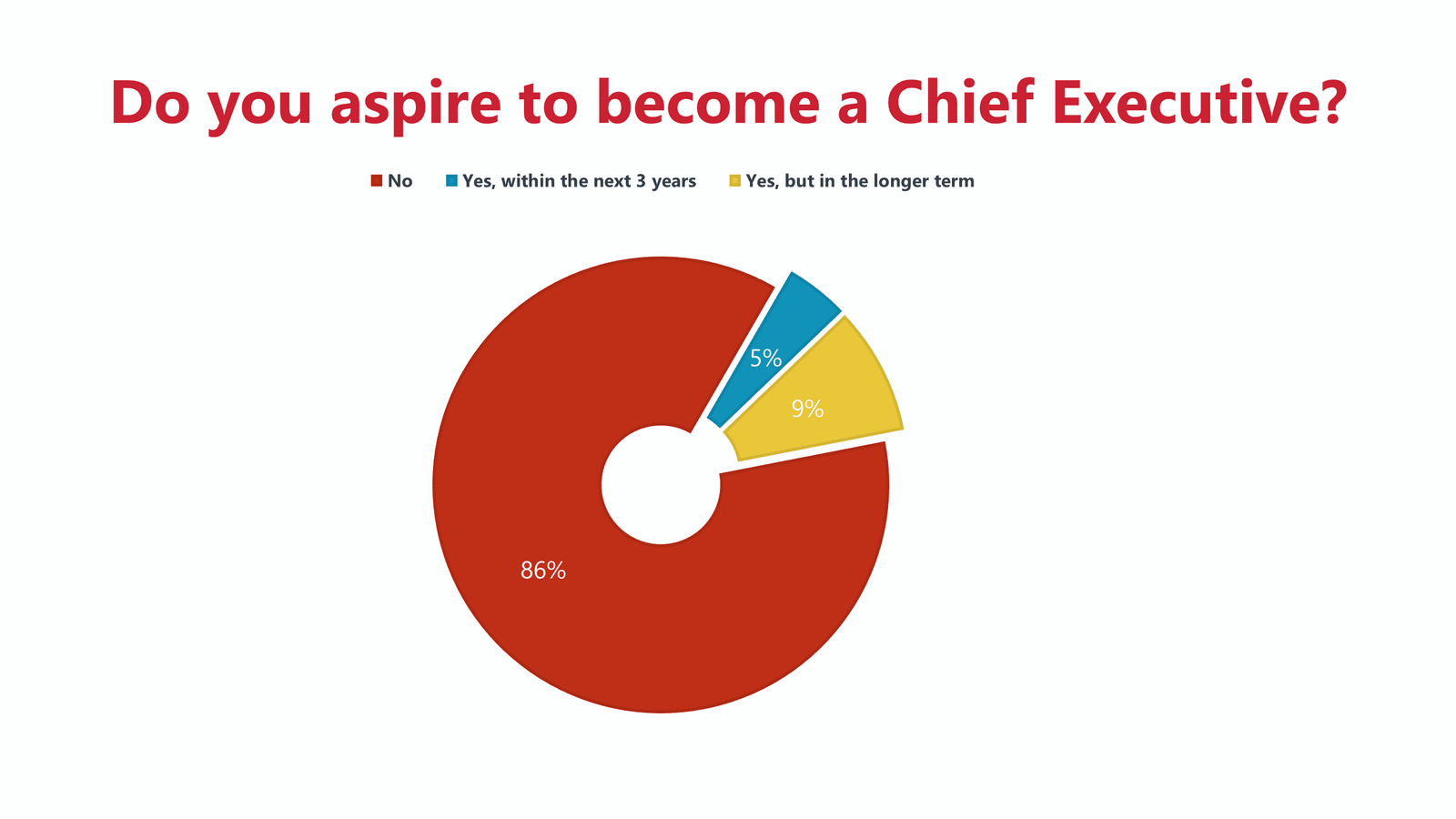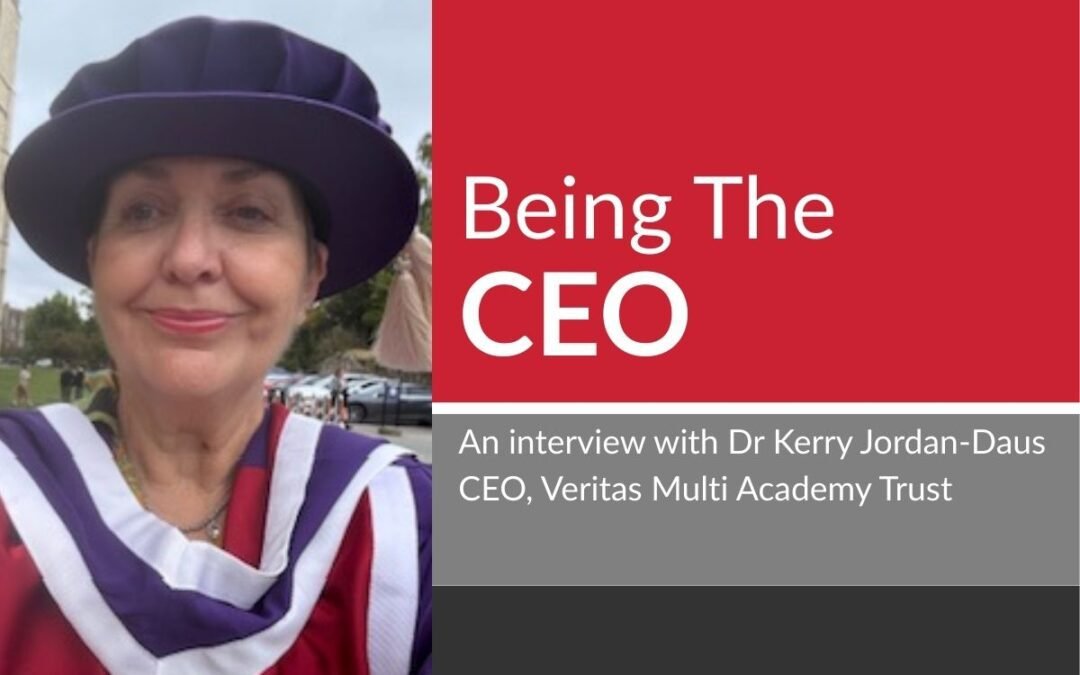Chief Operating Officers play a key role in the efficient and effective running of academy trusts, working alongside the Chief Executive Officer, the board and the executive leadership team to ensure academy trusts deliver upon their strategic aims, in a way that is in line with the vision and values of the organisation. In March 2021 Forum Strategy undertook a survey for members of our network of Chief Operating Officers in order to learn more about this relatively new but increasingly important and evolving leadership role in academy trusts. Below is an overview of the survey’s findings
The Role of COO
Chief Operating Officers often take the lead on operational priorities within an academy trust, which can include (but are not limited to) infrastructure, estate management, financial sustainability, workforce issues (including recruitment and retention), health and safety, and procurement. While some trusts do not employ a Chief Operating Officer, the role is becoming increasingly prevalent. This is likely because the two roles of CEO and COO can complement each other so well and together, allow for a clear distinction of responsibilities. In turn this allows for more focussed leadership of specific areas of trust management and development, in a way that is more manageable and sustainable over time. The role of Chief Operating Officer is a relatively new one in academy trusts in the majority of cases. In our survey more than half (64%) of participants had been in the role for three years or less. However, it is also becoming an increasingly integral role within academy trust leadership teams – particularly for larger trusts – and much more commonplace within academy trusts across the country.
Responsibilities
The COO role (like that of the CEO) can be difficult to pin-down and encapsulate in a simple fashion. What it means to be a COO, and the key priorities and responsibilities of the role, differs significantly from trust to trust. Therefore, when asked to outline the three most important priorities of their role in our survey, COOs unsurprisingly gave a wide range of responses.
However, the four responsibilities which stood out as being key priorities for the majority of our respondents were estates management, financial sustainability, project management, and technology capacity and delivery. This demonstrates some overlap with the priorities highlighted by CEOs in Forum Strategy’s ‘Being the CEO’ report last year, particularly that of technology capacity, which has no doubt become a greater priority for both COOs and CEOs due to the need to provide online learning and remote working as a result of the Covid-19 pandemic. Also similarly to our CEOs, only a small percentage of COOs see the environmental sustainability of their trust as being a key priority (9%). In fact, none of our respondents felt this was one of the areas they felt confident delivering on, and over 45% cited this as one of the areas they feel least confident in delivering. This is despite the COO likely being the person within trusts who could have a significant impact on environmental sustainability, for example, through helping to develop environmentally friendly estates and procurement practises and policies. There are also potential links to be made between environmental sustainability and efficiencies, an area COOs likely take a lead role in for the trust. We suggest that one way COOs may find both support and inspiration to improve their knowledge and confidence in this area could be through attending Forum Strategy’s Trust Leaders strategic group on environmental sustainability, which meets online on a termly basis.
Find out more here: CEO Strategy Group 3 (Meeting 2) – Environmental Sustainability | Forum Strategy.
Reassuringly, COOs reported high levels of confidence in delivering on finance, project management, and workforce issues, all of which are vital to the continued viability and success of academy trusts. However, over 35% of COOs reported that they did not feel confident around technology capacity and delivery or fundraising – both of which link to self reported key priorities. This suggests that some investment might be made in building COO confidence and knowledge of technologies and fundraising, including engaging in activities to help build the financial sustainability of the trust and opportunities to understand more about the role technology can play in the effective running of a trust.
Another core aspect of the COO role is the responsibility for leading teams of people. The vast majority of COOs have responsibility for teams of more than three (91%) with some managing teams of over 10 people (18%). Therefore people management, leadership and team development are clearly essential skills that COOs need to possess and continually build upon in order to be successful.
As executive leaders, COOs also need to be strategic thinkers as well as operational leads, with the ability to consider the bigger picture and to plan for both short-term and long-term strategic goals.The Covid-19 pandemic has meant over the past year COOs have had to react to a constantly shifting situation, which has made short-term decision making the priority. However, as we begin to emerge from the pandemic, COOs will once again have a greater opportunity to focus on planning and implementing the strategic vision for their trust. At Forum Strategy we aim to help and support all of our members to reflect upon the strategic elements of their role, and to aid them in their strategic thinking and outlook.
Current strategic thinking requires putting in place a post-pandemic plan for recovery, and in our survey, the majority of respondents indicated that they were some way into planning this (59%), and just over 1 in 4 respondents had their recovery plan firmly established. On the other hand, 14% of respondents reported that they do not have any post pandemic recovery planning in place as of yet. This may well be down to capacity and having to balance strategic planning with operational demand, but we would suggest that having plans in place as trusts emerge from the pandemic and beyond should now be a priority. COOs are in a great position to be influence this planning as they know and understand the operational implications as well as the strategic level view.
Professional Background
Interestingly, the majority of COOs who took part in our survey (73%) come from a background of working within the education sector, usually in roles which involve finance, business operations, estates management or HR, but very rarely from teaching roles (under 5%). However, a background in education is by no means seen as a prerequisite for the COO role, with over 20% of COOs having worked in the wider public sector – or the charity sector – prior to their current role, and bringing along with them the transferable skills they need to succeed. This indicates that the potential talent pool for COO recruitment is quite large and varied and CEOs will want to think carefully about the sort of experience, skills and knowledge they need their COO to have now and in future.
In terms of career aspirations, fewer than 15% of COOs have their sights set on taking on the role of Chief Executive in the future. This likely reflects the perception that the two roles are very different in nature, requiring different kinds of skills, experience, interests or temperament, and that our COOs in the main feel they are suited best to their current role. It may well also reflect the fact that participants feel fulfilled in their current role and with the high levels of challenge, and reward, involved within it. On the other hand, it may reflect a perceived lack of opportunity and /or a lack of confidence to move into the CEO role. Further research is needed in order to clarify the reasons why the COOs who took part in our survey, in general, do not aspire to become Chief Executives, as the talent within the COO role could well help to feed the pipeline for future CEO roles if nurtured properly.
Working with the CEO
The vast majority of COOs who took part in our survey feel their relationship with their trust CEO is a positive one. However, the need for Chief Executives to schedule time to communicate with COOs on a regular basis is certainly highlighted, with 23% of our respondents reporting that they would benefit from more time with the CEO. Ideally CEOs should be meeting with their COOs on a one-to-one basis weekly, with clear channels of communication kept open in between these meetings.
Around 1 in 10 of our COOs also expressed a desire for further clarification of the expectations of their role. This may again reflect that the COO role is still an evolving one, with expectations of the role often differing between trusts. It also indicates the need for CEOs to ensure not only that they have clear expectations of the COO role, but also that they have adequately and explicitly communicated these expectations. It may be worth all CEOs making the time to meet with their COO annually to review and clarify expectations and objectives for the year ahead, in order to get the best from the role of COO and ensure expectations and delivery are aligned fully.
CPD and Sources of Support
It is very positive to note that nearly all of our respondents (over 95%) have accessed CPD in the past 12 months, and clearly view professional development as a priority. COO CPD for the most part has taken the form of attending training workshops or courses, accessing online resources, and networking. A much smaller number of respondents have also engaged in coaching or mentoring. Mentoring and coaching, as well as courses, workshops and online resources, were highlighted as areas of CPD that COOs felt they would benefit most from over the next 12 months. Given that coaching and mentoring are listed as priority areas, but are not currently widely accessed by COOs, it would be useful for trusts to consider how they could arrange these opportunities for their COOs, and/or support them to take up these kinds of opportunities, either through Forum Strategy or elsewhere.
With the role of COO being a fairly new one in the academy trust sector, many COOs understandably want to find and develop a network of peers who they can turn to for mutual advice and support. This is one of the main aims of Forum Strategy’s COO Network, and as more network events take place moving forward, hopefully with some opportunities for COOs to meet face-to-face, connections should be forged and strengthened over time in the same way that they have within our CEO networks.
In future sessions of Forum Strategy’s COO Network, COOs have indicated that they would be most interested in hearing from other COOs who work within the education sector, listening to leadership perspectives, and accessing the latest information on education policy and legislation.
In summary, this survey has provided a small but significant insight into the new and evolving role of COO within academy trusts and provides a basis from which further knowledge and research can be developed. The need to understand the role of COO is important in it’s own right (so that development and network building is appropriate and relevant) but, also in the context of better understanding leadership structures within trusts and in particular, the roles that underpin and enable the CEO to perform effectively. With a COO in place who is well directed, well developed and well challenged, trust CEOs can focus on the core aspects of the CEO role, confident in the knowledge that their COO is leading the operational priorities. Similarly, if the COO is clear on trust priorities and CEO expectations, feels well developed and challenged and is empowered to lead operational areas, they will thrive and provide significant leadership capacity to all levels of the organisation. The CEO and COO relationship is key to enabling success across trusts of varying sizes and complexity.
Some Key Findings
- The majority of COOs have been in post three years or less (64%) indicating this is a relatively new and developing role in trusts
- The top 4 priorities for COOs are (in this order): Finance, Estates, Project Management and Technology Capacity and Delivery.
- Confidence levels are most high in finance, project management and workforce issues and least high in environmental sustainability, technology capacity and delivery and fundraising.
- When asked about post-pandemic planning for recovery, the majority of respondents indicated being some way into planning (59%) with 1 in 4 already having a plan in place (27%). A small number suggested they didn’t yet have any post pandemic recovery planning in place (14%).
- Over 95% of respondents have accessed CPD in the past 12 months. CPD for the most part has taken the form of attending training workshops or courses (64%), accessing online resources (59%), and networking (59%). A much smaller number of respondents have also engaged in coaching (9%) or mentoring (14%).
- Training courses and workshops (36%), online resources (23%), mentoring (36%) and coaching (32%) were highlighted as areas of CPD that COOs felt they would benefit most from in the next 12 months.
To view the Being The CEO report click here












